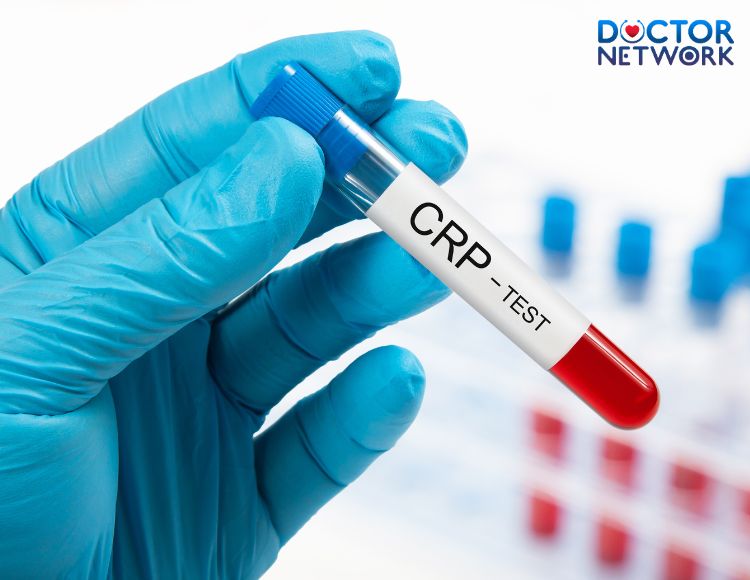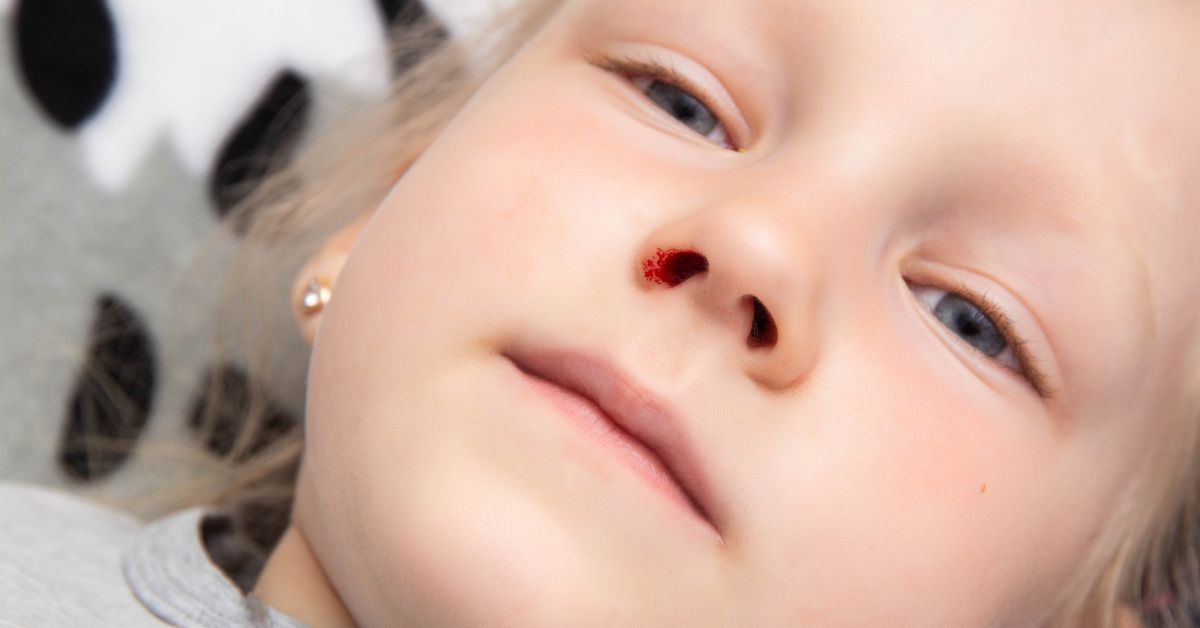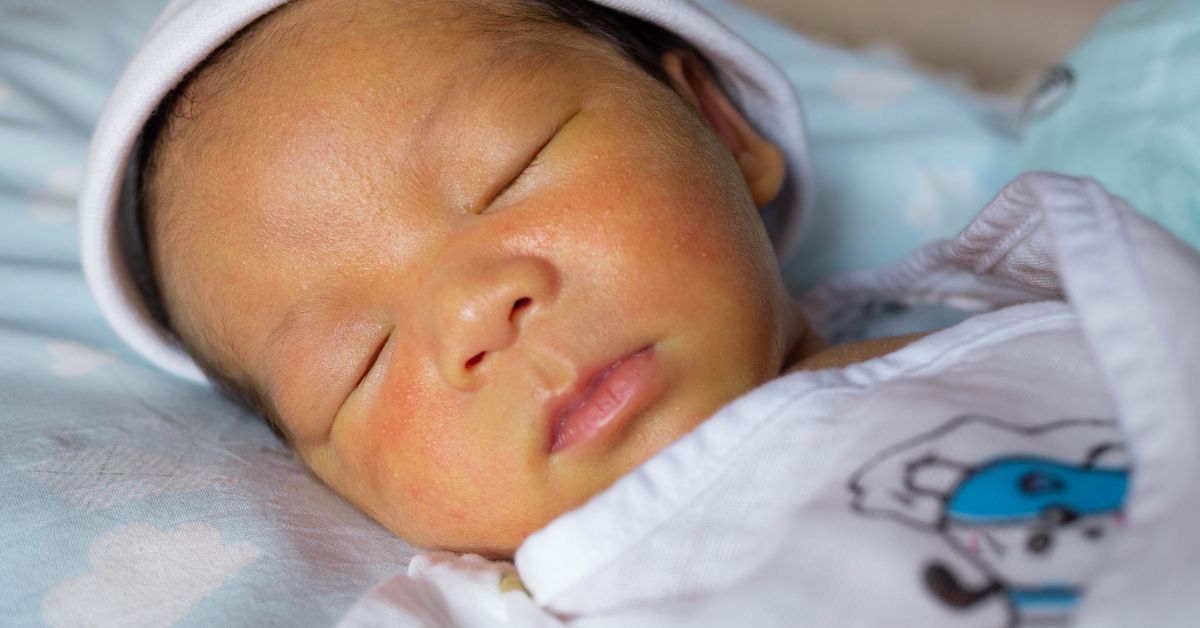CRP (C-reactive protein) levels are a simple blood test used to assess inflammation in the body. “Elevated CRP levels in children” indicate possible inflammation somewhere in the body. This article aims to help parents understand the significance, causes, and management of inflammation in children.
Causes of elevated CRP levels in children
Infections: Respiratory infections such as pharyngitis, bronchitis, pneumonia, and gastrointestinal infections like gastritis or appendicitis are common causes of elevated CRP levels in children.

Blood Infections is common cause of “Elevated CRP levels in children”
Blood Infections: Severe infections threatening life can result in high CRP levels.
Other Conditions:
Autoimmune Diseases: Low-grade arthritis, juvenile lupus, etc.
Cancer: Some cancers may cause increased CRP levels.
Injury or Surgery: Normal inflammatory response of the body.
Symptoms associated with elevated CRP levels in children
Apart from high CRP levels, children may exhibit symptoms such as:
High fever
Fatigue, loss of appetite, irritability
Muscle aches
Other specific symptoms depending on the location and cause of inflammation.
Testing and diagnosis of elevated CRP levels in children
CRP Test: A simple blood test to evaluate the degree of infection-related inflammation.
Additional Tests: The doctor may order further blood tests, cultures, X-rays, ultrasound scans, etc., to identify the exact cause of elevated CRP levels in children.
Treatment of elevated CRP levels in children
The treatment approach for elevated CRP levels in children entirely depends on determining the underlying cause of the disease:
Infections: Antibiotics (for bacterial infections), antivirals (for viral infections), or other specific treatments.
Autoimmune Diseases: Immunosuppressive drugs, anti-inflammatory medications, etc.
Surgery: Surgical removal of inflamed appendix, tumors, etc., if necessary.
Supportive Care: Fever reduction, hydration, electrolyte balance, ensuring proper nutrition for the child.
“Elevated CRP levels in children” – Supportive Care
Monitoring and prevention
CRP Monitoring: Regular monitoring helps evaluate treatment response and disease prognosis.
Prevention: Maintain good hygiene, complete vaccination, proper nutrition, and a healthy living environment to reduce the risk of infections in children.

“Elevated CRP levels in children” – Monitoring and prevention
Normal CRP levels in children
Infants: < 10 mg/L
Children: < 5 mg/L (normal CRP level in children)
Note: CRP levels are for reference only; interpretation of results should be combined with a comprehensive clinical assessment.
Role of CRP levels in pediatric medicine
CRP testing is useful for:
Differential diagnosis: Differentiating bacterial from viral infections.
Monitoring treatment: Evaluating the effectiveness of antibiotics, anti-inflammatory drugs, etc.
Prognosis: Prolonged elevated CRP levels may suggest severe underlying diseases.
FAQs related to “elevated CRP levels in children“
Here are some common questions related to “elevated CRP levels in children”
1. Is it dangerous if my child has elevated CRP levels?
Elevated CRP levels indicate inflammation somewhere in the child’s body. The degree of danger depends on the cause of inflammation. Mild infections usually respond well to treatment, while severe conditions (blood infections, autoimmune diseases, etc.) may threaten life if not promptly treated. Therefore, it’s essential to take the child to a pediatrician for accurate diagnosis.
2. What are the signs that indicate the need for a CRP test in my child?
Doctors typically order a CRP test when a child presents with:
Prolonged high fever
Fatigue, loss of appetite, weight loss
Joint pain, joint swelling
Suspected infection symptoms not yet diagnosed
3. Besides CRP, what other tests does my child need?
To determine the underlying cause of elevated CRP levels, the doctor may also order:
Complete blood count
Blood cultures, fluid cultures
X-rays, ultrasound scans, etc.
Specialized immunological tests, cancer screenings, etc., if necessary
4. How is elevated CRP treated in children?
Treatment for elevated CRP levels focuses on addressing the root cause of inflammation:
Infections: Antibiotics, antivirals, etc.
Autoimmune diseases: Immunosuppressive drugs, anti-inflammatory medications, etc.
Surgery: Surgical removal of inflamed tissues, tumors, etc., if required.
Additionally, children need supportive care such as fever reduction, hydration, and adequate nutrition.
5. Is there any way to prevent elevated CRP levels in children?
Reducing the risk of inflammation in children involves:
Maintaining good personal hygiene
Ensuring complete vaccination
Promoting a balanced diet for immune support
Creating a healthy living environment
Scientific evidence on “elevated CRP levels in children“
Here are some scientific references on “elevated CRP levels in children”
Journal of Pediatrics “C-reactive protein in children: A literature review”: This article reviews studies on CRP in children, including normal levels, causes, significance, and management of high CRP. (https://www.mdpi.com/2227-9059/11/11/2961)
Clinical Pediatrics Journal “Role of C-reactive protein in diagnosis and treatment of infections in children”: This paper discusses the role of CRP in diagnosing and monitoring infections in children. (https://pubmed.ncbi.nlm.nih.gov/9271034/)
KidsHealth Website “What Is C-Reactive Protein?”: This article provides easy-to-understand information about CRP, including normal levels, causes, and significance of elevated CRP in children. (https://kidshealth.org/en/parents/test-crp.html)
BMJ Open Journal “C-reactive protein as a marker of inflammation in children”: This article analyzes data from a large study to assess the relationship between CRP and various diseases in children.
Conclusion
“elevated CRP levels in children” – CRP levels are a useful tool for assessing inflammation in children. When children have elevated CRP levels, parents should consult a pediatrician for timely diagnosis and treatment. Regular CRP monitoring helps evaluate treatment effectiveness and disease prognosis. Always prioritize your child’s health and take proactive measures to prevent dangerous diseases.
References:
https://www.mdpi.com/2227-9059/11/11/2961
Kiểm Duyệt Nội Dung
More than 10 years of marketing communications experience in the medical and health field.
Successfully deployed marketing communication activities, content development and social networking channels for hospital partners, clinics, doctors and medical professionals across the country.
More than 6 years of experience in organizing and producing leading prestigious medical programs in Vietnam, in collaboration with Ho Chi Minh City Television (HTV). Typical programs include Nhật Ký Blouse Trắng, Bác Sĩ Nói Gì, Alo Bác Sĩ Nghe, Nhật Ký Hạnh Phúc, Vui Khỏe Cùng Con, Bác Sỹ Mẹ, v.v.
Comprehensive cooperation with hundreds of hospitals and clinics, thousands of doctors and medical experts to join hands in building a medical content and service platform on the Doctor Network application.


























